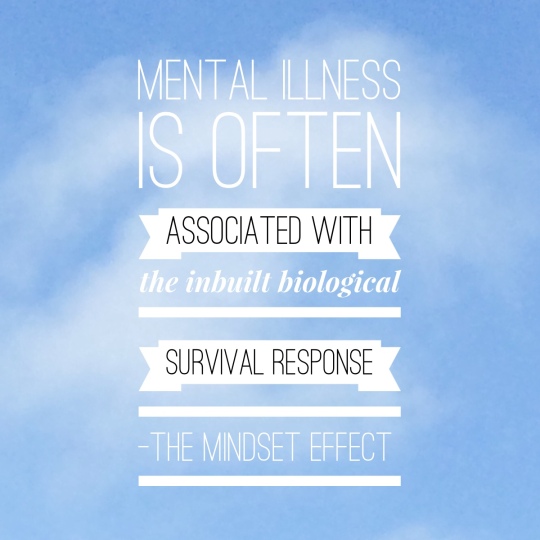Stress and mental illness
I think most people believe that stress and mental illness are separate entities. The truth is, they are inextricably linked.
Stress can impact on an already diagnosed condition, or it can also be the ultimate cause of specific mental health conditions.
For example, research on Borderline Personality Disorder (BPD), Dissociative Identity Disorder (DID) and Post Traumatic Stress Disorder (PTSD) states they often result from trauma. DID is the newest name for what used to be called Multiple Personality Disorder, which is where the brain separates, or dissociates, from yourself to protect your brain and body from the pain of trauma (usually severe abuse in this case). Research has found that many people diagnosed with BPD also often have a history of abuse in their childhood. There are some things we just don’t need to remember. And PTSD is obviously labelled PTSD for a reason.
If you’re interested in reading a little more on some of these conditions, check out the articles we published in January when we did a focus on mental health. You’ll find factual articles explaining specific conditions as well as some of our readers sharing their experiences with us. readers, Tegan and Kaye, shared their experiences with BPD. You’ll find them all if you search in the archives for January 2014.
On the other side of the coin, when you already have a diagnosis, such as with depression and anxiety, stress can make the condition harder to treat. It’s much more difficult to manage anxiety when your amygdala is being activated repeatedly. In fact, anxiety comes from this repeated switching on of the stress response. When you worry about stuff there is an element of fear that something will go wrong, which triggers our inbuilt survival mechanism. One of my colleagues also wrote a guest post for us back in January. In it she discussed how anxiety works. Note how Sam talks about the stress response and those pesky saber-toothed tigers.
One of the most important things to note for stress and mental illness is that with the help from your professional support team, it may be possible to manage your condition more effectively by using some simple techniques to down-regulate the response. Check out our previous posts over the last few days on Stress and the Triune Brain, Stress and the Amygdala, Stress and Trauma, and the down-regulation of stress. They will give you a good idea of how this response works and how you can help manage it.
On Saturday we’ll talk about stress and breathing, where a colleague and friend of mine will take you through simple breathing practices that can help.
Please remember that while these exercises can be of benefit, always use the guidance of your professional mental health support team. I’d encourage you to show them this post to give them an idea of what we’ve discussed.


